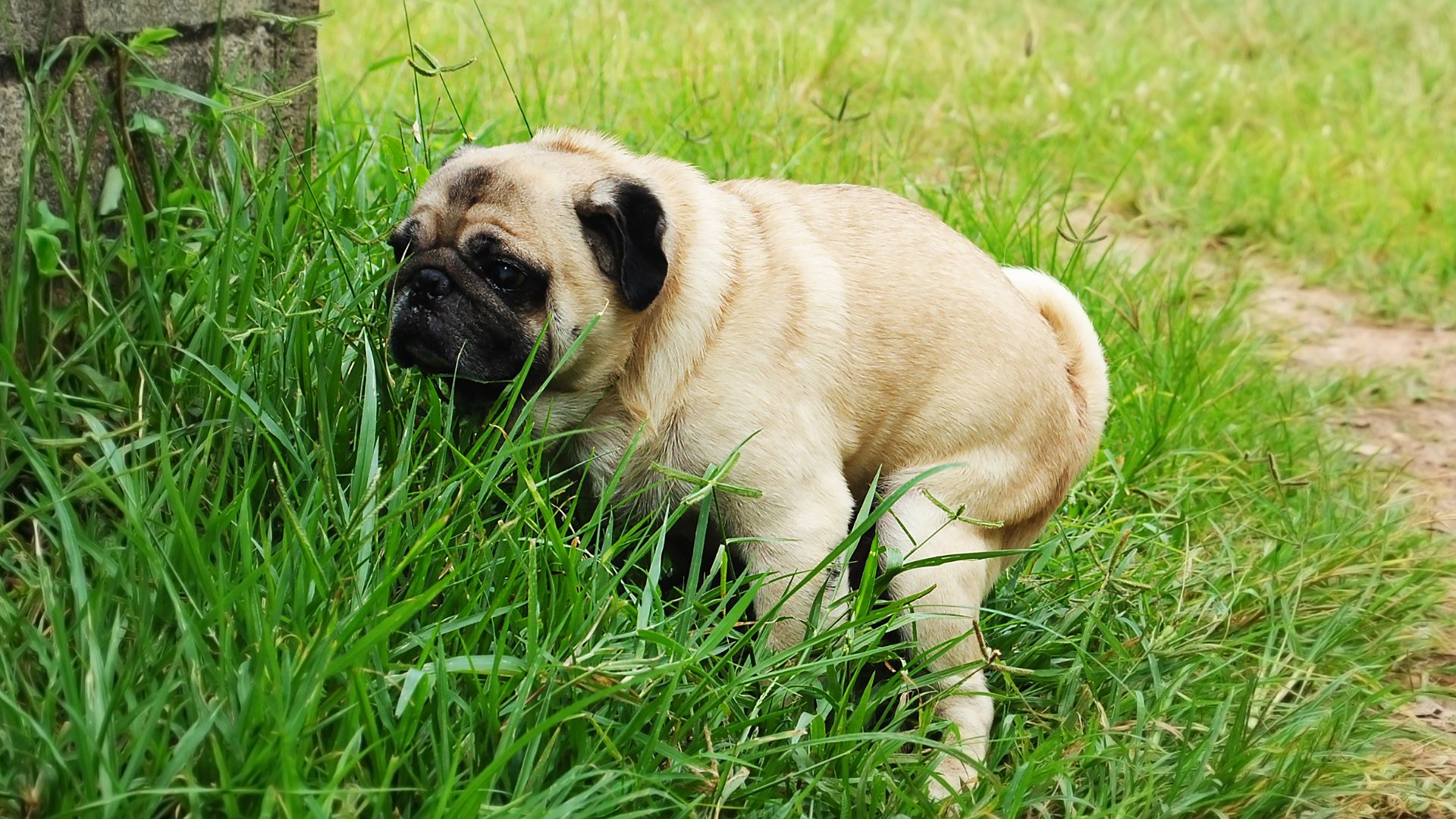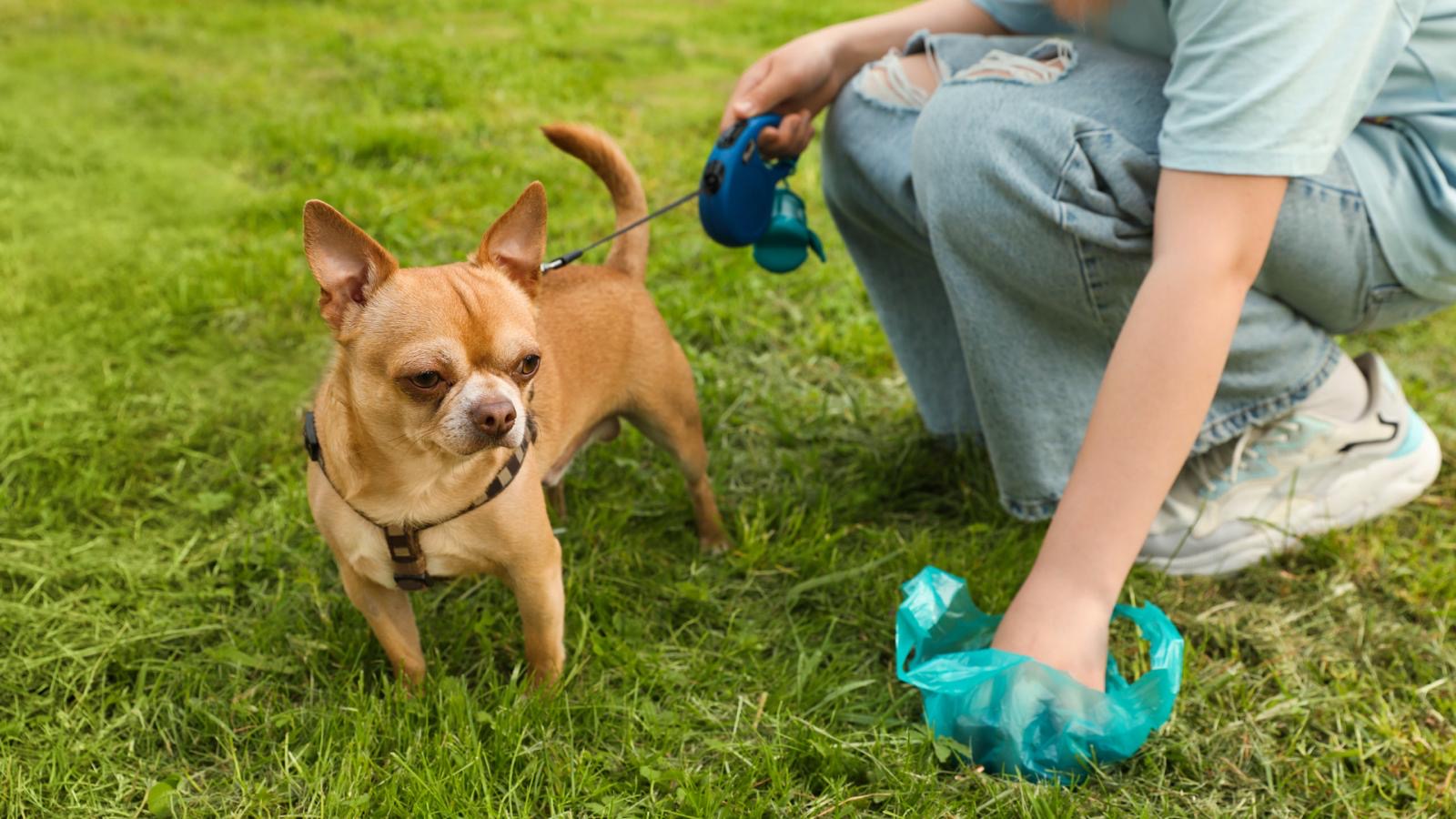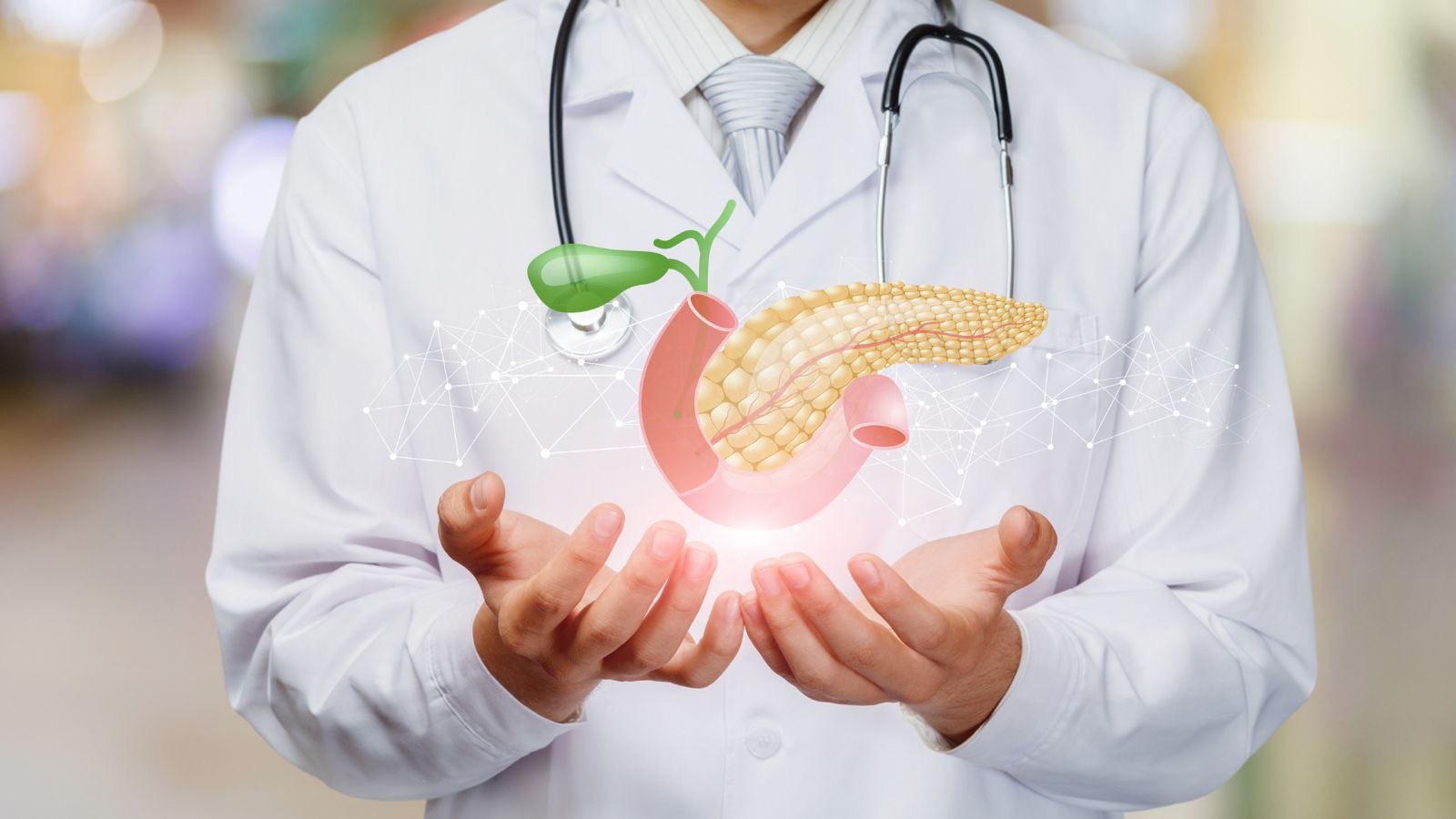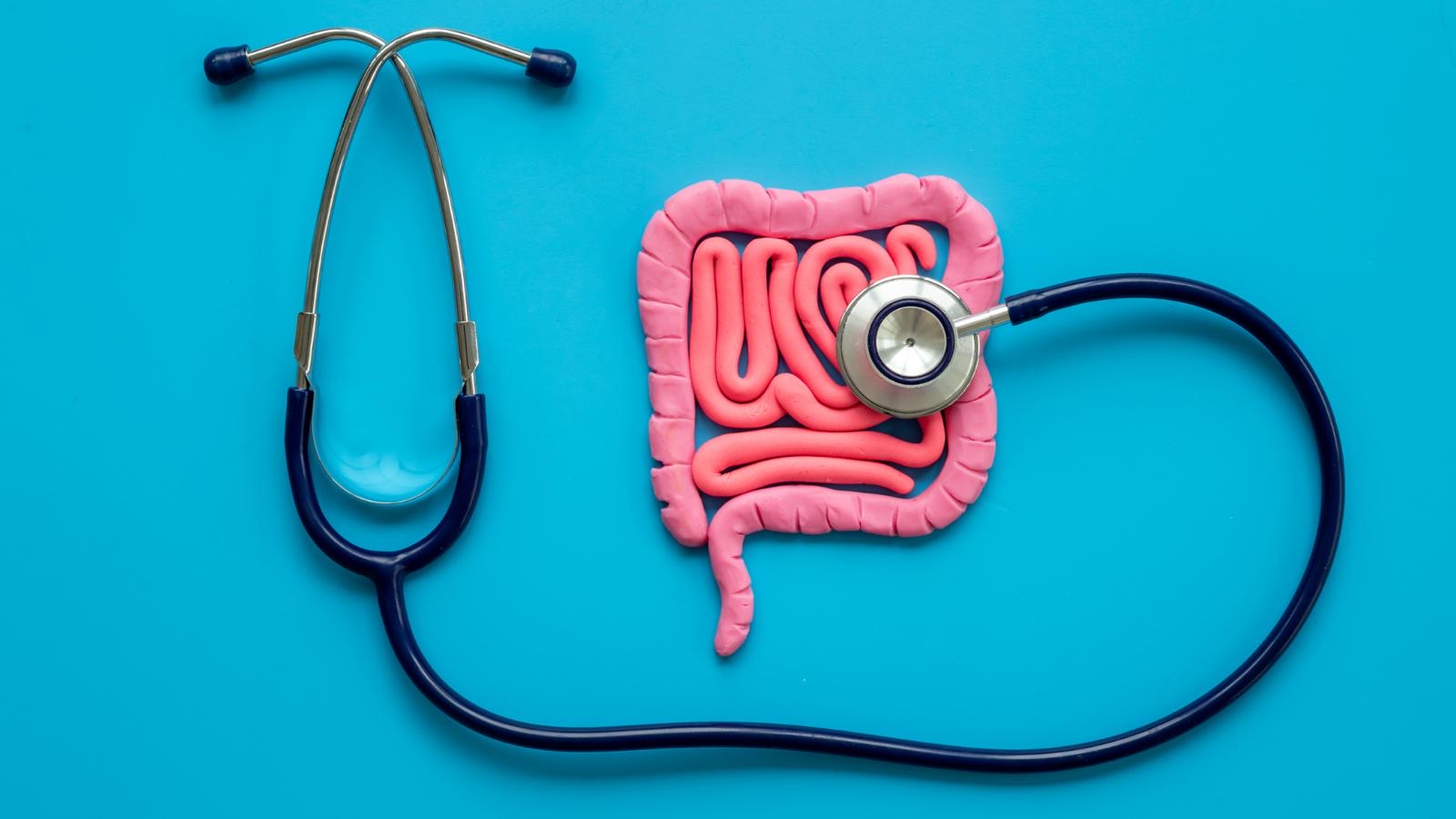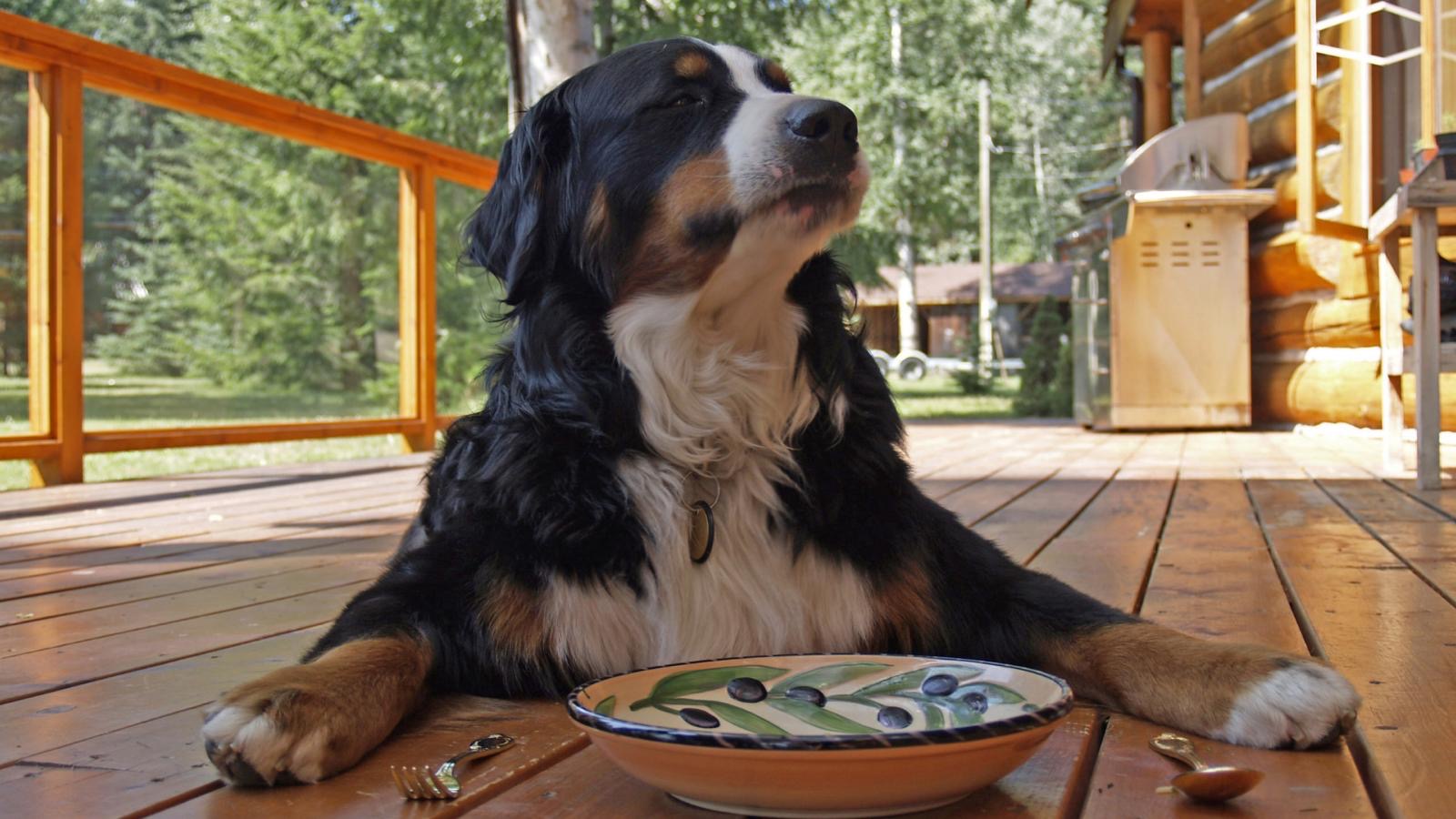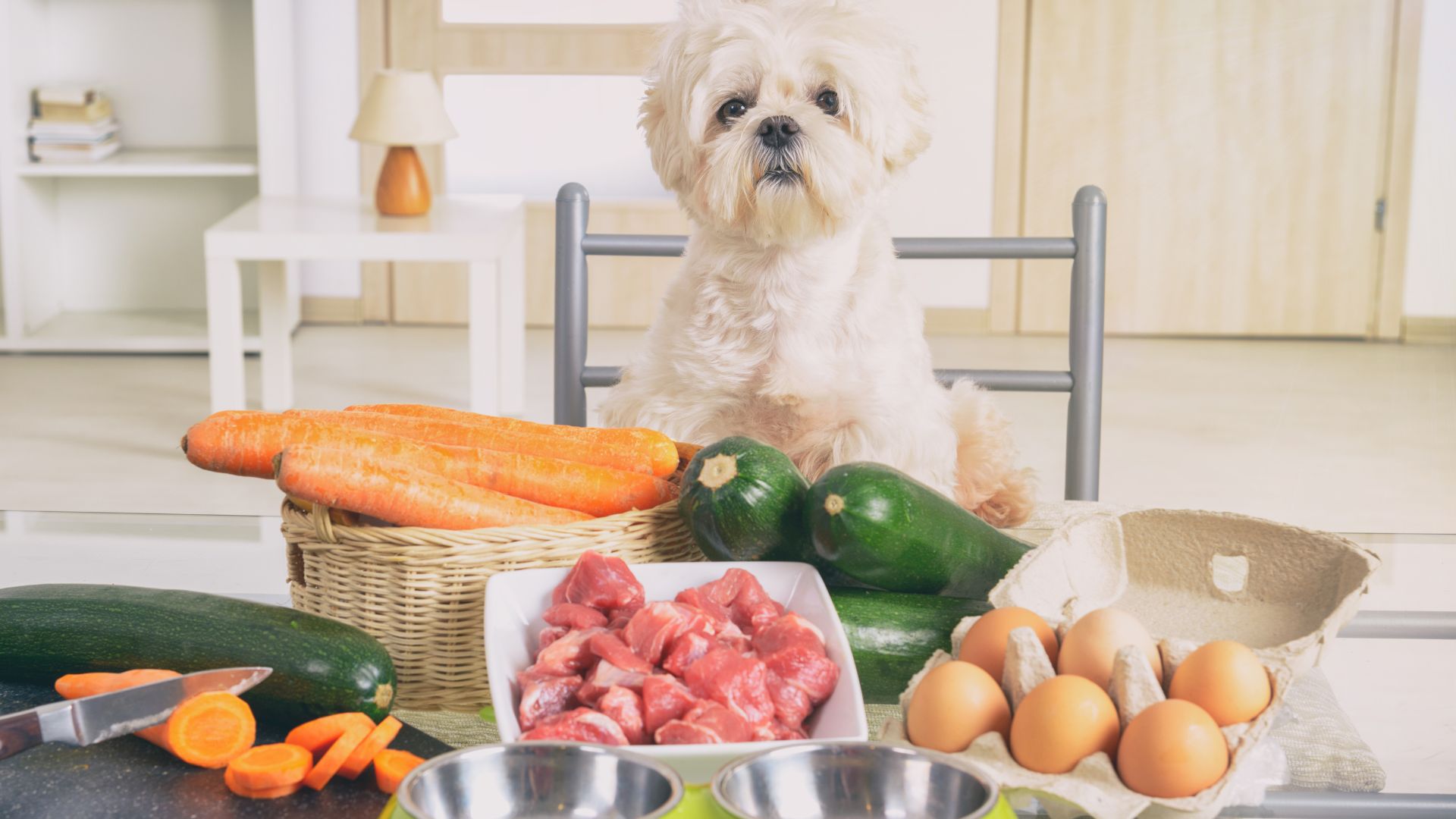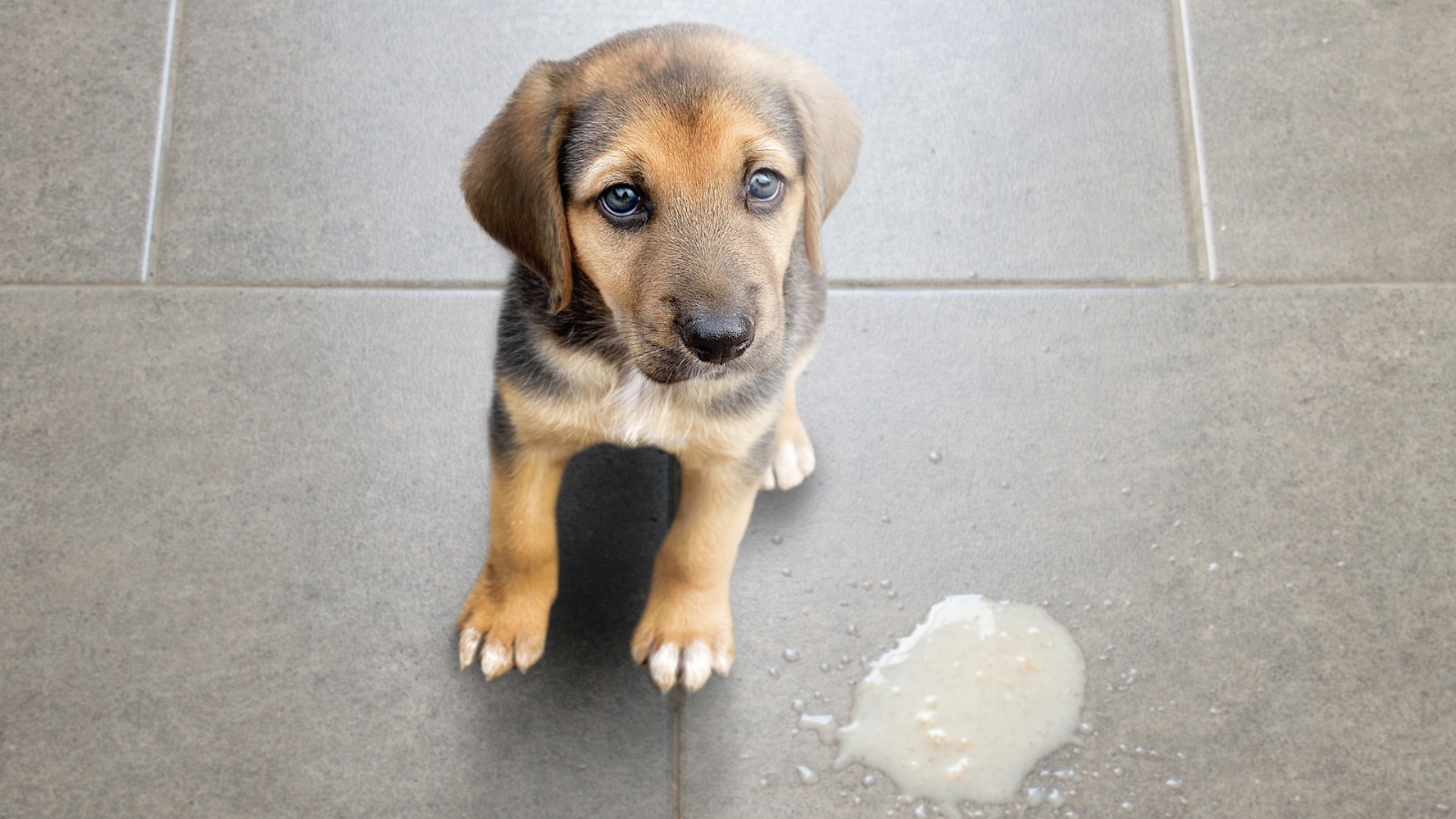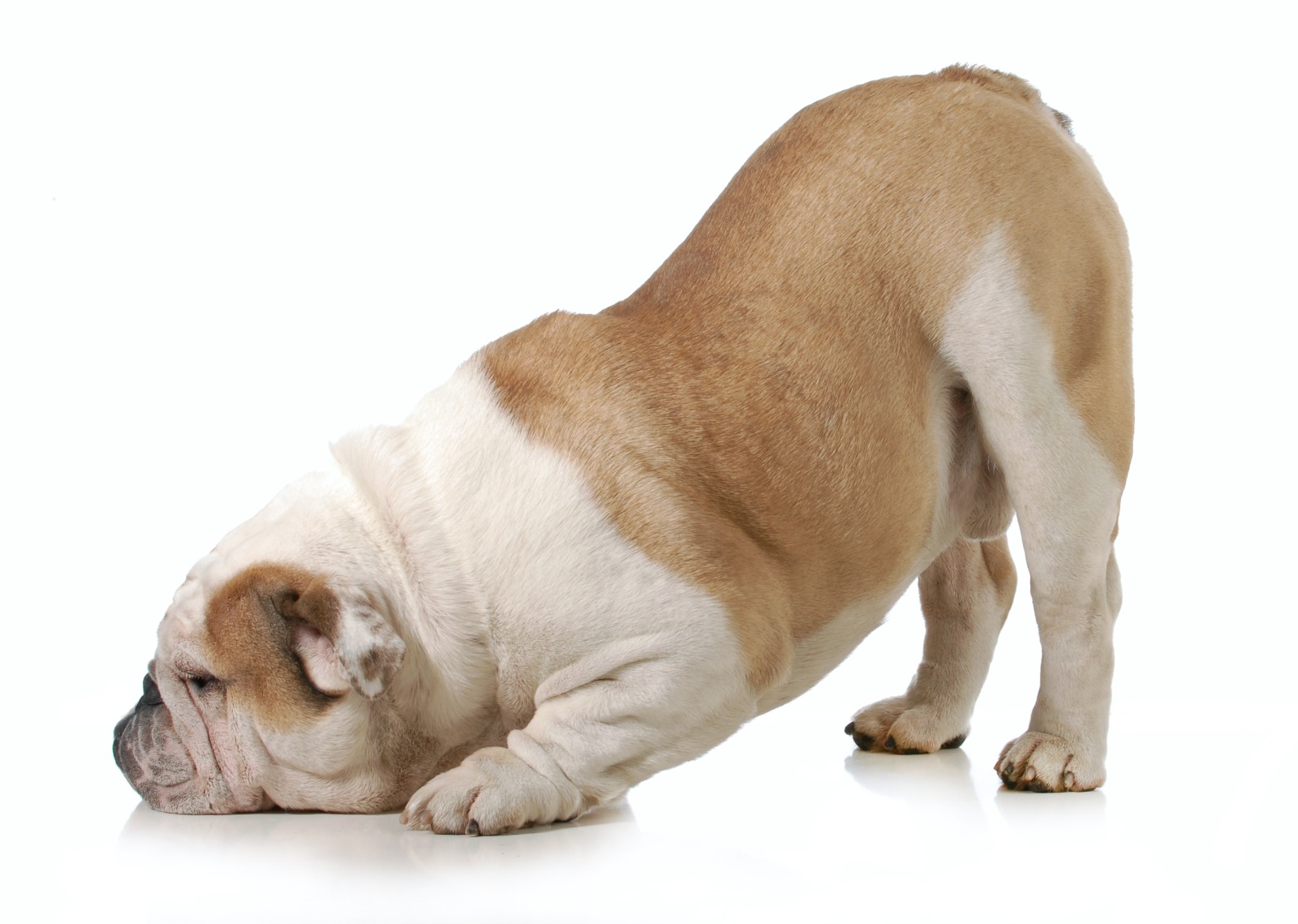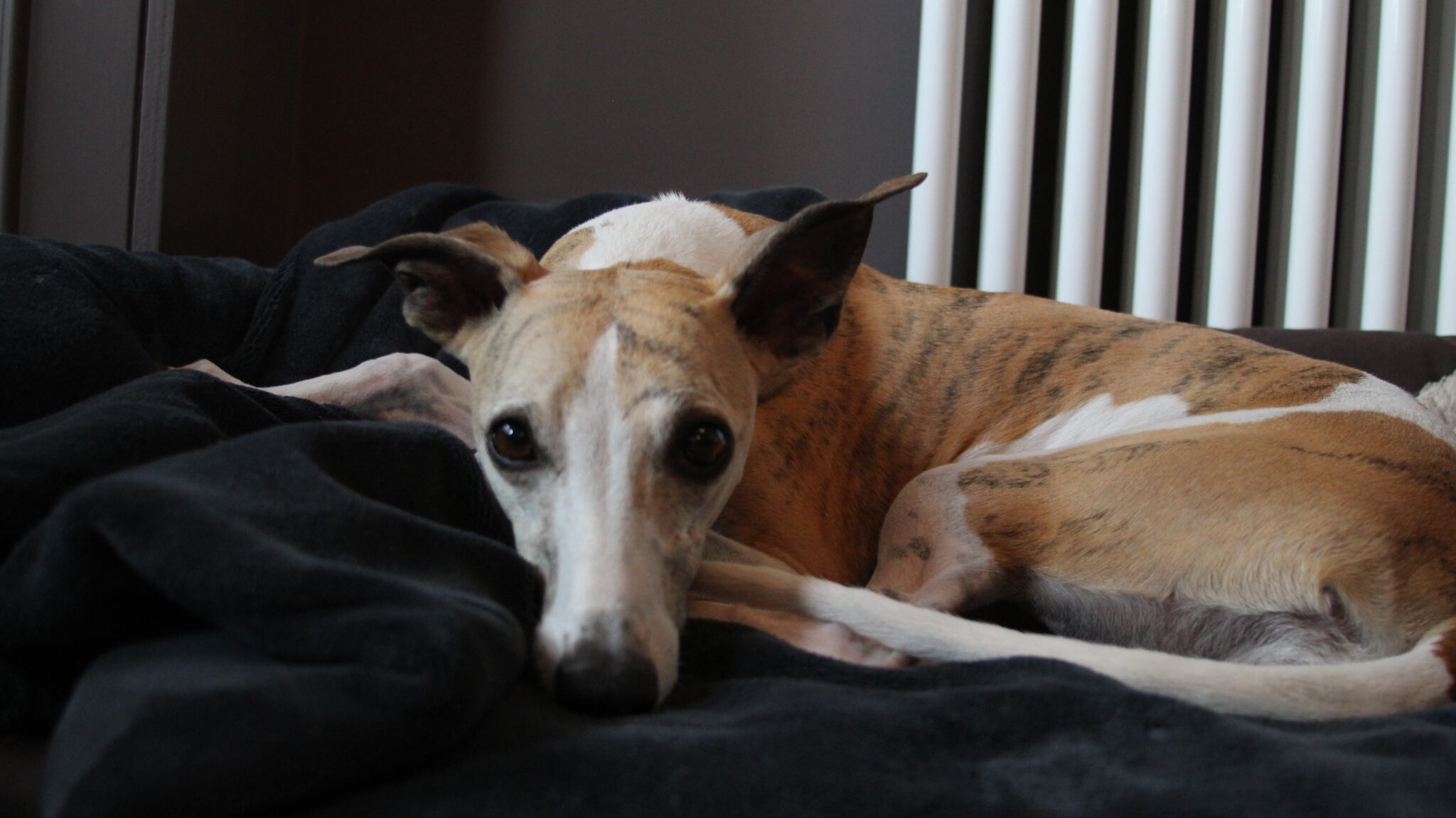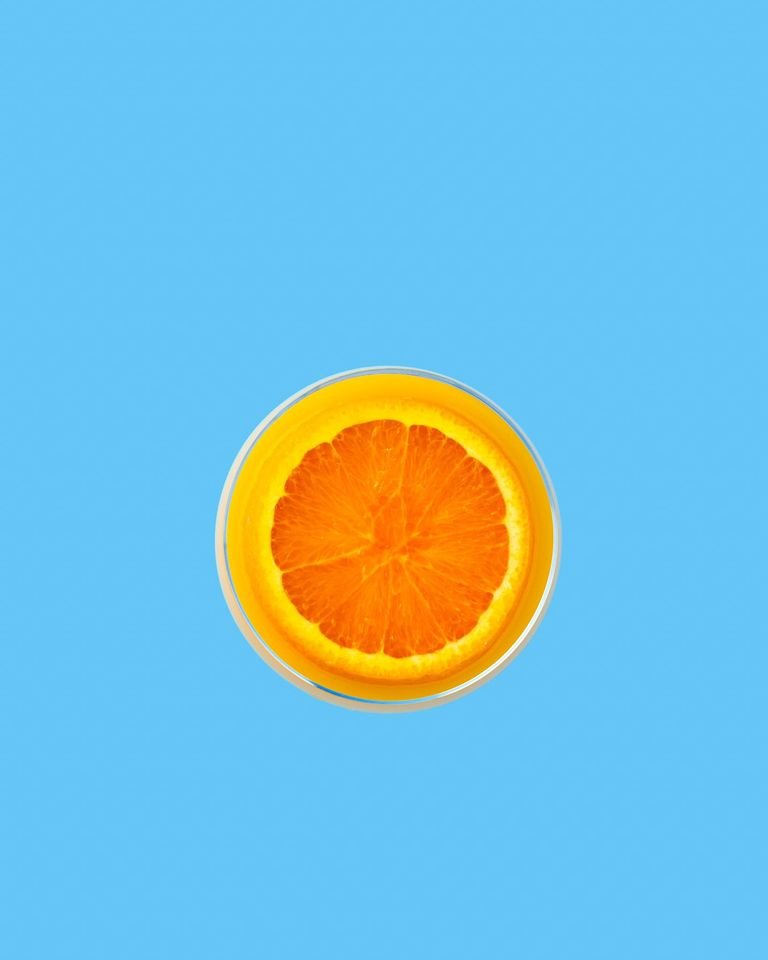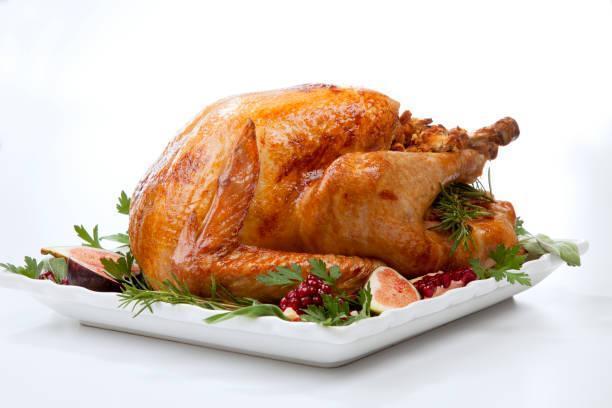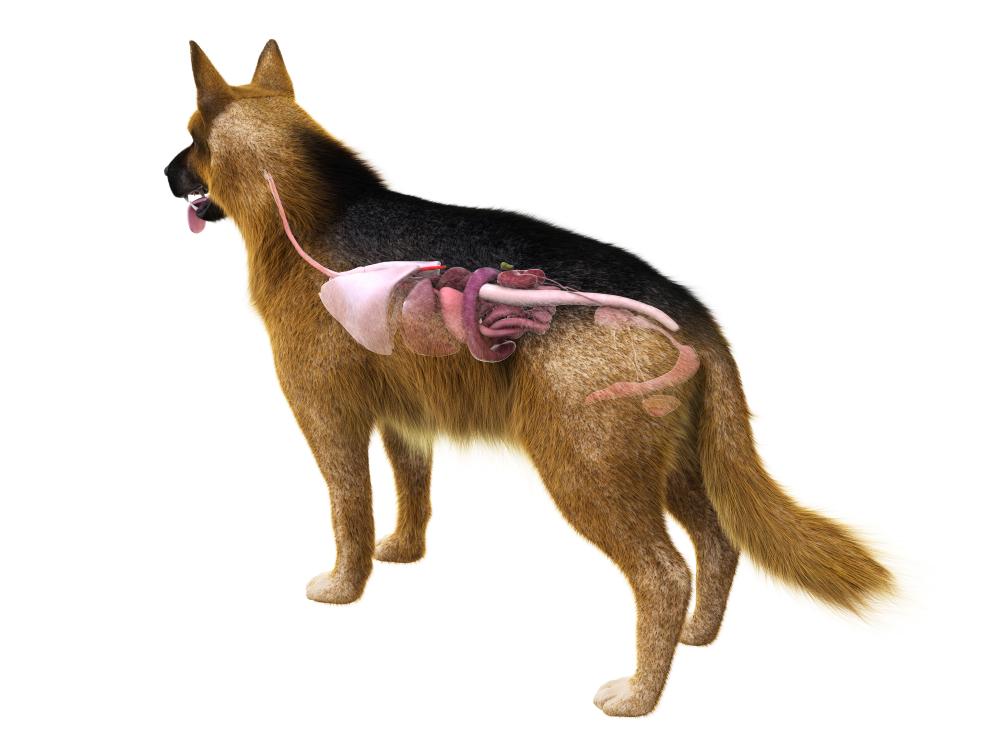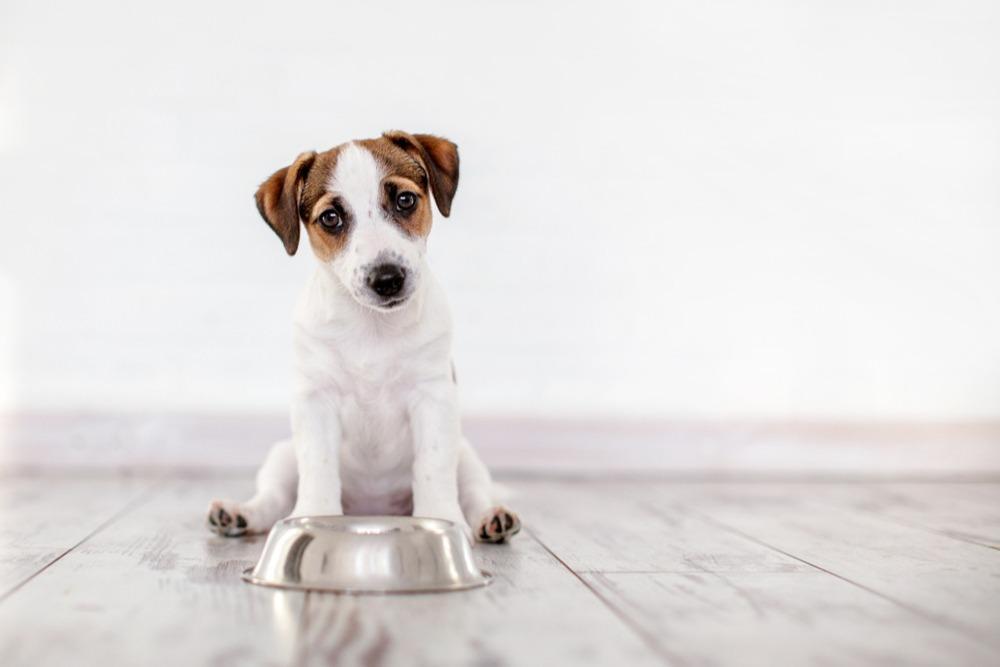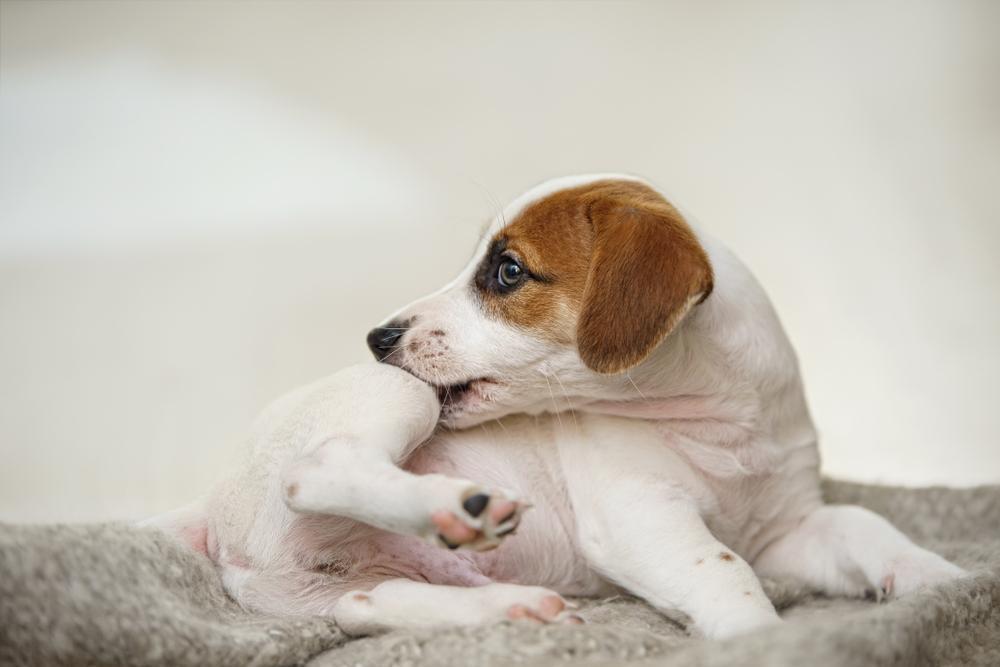Here at My Pet Nutritionist, we help a lot of dogs who present with regurgitation. It’s not a pleasant sensation for us humans, and it’s no different for our canine companions. Regurgitation can occur for various reasons, which we will take a brief look at in this blog. We will also discuss what is the best food to feed your dog, and what supplements could be considered for your dog suffering with regurgitation.
What is Regurgitation?
Regurgitation is the expulsion of undigested food via the mouth. Unlike when a dog vomits, when there are ‘warning signs’ such as licking of the lips, drool etc, when a dog regurgitates, it’s very much instantaneous with no pre-warning.
One of the biggest risks of regurgitation, especially in brachycephalic breeds, is aspiration pneumonia. When regurgitation occurs, the larynx can struggle to close quickly enough. Being open at the time of regurgitation can cause particles of food to be breathed in, which causes the pneumonia.
What Can Cause Regurgitation?
There are various reasons a dog may regurgitate. It’s not necessarily a condition on it’s own, but it’s more a symptom of an underlaying illness. It can also be partly down to breed predisposition due to being congenital. Breeds with a predisposition include:
- Chinese shar pei
- Newfoundland
- Miniature schnauzer
- Great dane
- German shepherd
- Labrador
- Fox terrier
Acquired causes (those which regurgitation is a symptom of) include:
- Acid reflux: the pressure of the chyme in the stomach due to digestive incapabilities, causes the dog to regurgitate. Read more about acid reflux here.
- Megaoesophagus: peristalsis is unable to occur, so food sits in the oesophagus in the chest. Read more on megaoesophagus here.
- Laryngeal Paralysis: the larynx is unable to function, so the windpipe and throat may be open at the same time. This causes coughing and gagging, which can lead to regurgitation. Read more on Laryngeal Paralysis here.
- Brachycephalic Obstructive Airways Syndrome (BOAS): some of the breathing and swallowing pathways which are affected in those with BOAS can cause regurgitation. Food particles can get stuck at various points in the digestive system in these dogs. Surgery is required to open the relevant pathways to reduce the risk of regurgitation.
- Foreign Body: when something is lodged in the throat or chest cavity, regurgitation can occur, as food particles are unable to bypass the blockage.
- Cancer: depending on where the tumour is, your dog may be unable to digest food, and/or food particles may get stuck somewhere along the digestive tract, leading to their expulsion through the mouth.
- Stress: digestive function is compromised when the body is under stress as the sympathetic nervous system kicks in. hypersensitivity occurs during stressful situations too, which heightens the risk of oesophageal irritation, and therefore regurgitation.
- Incorrect Diet: feeding your dog a diet that does not suit them is a major cause of regurgitation. The body reacts to unsuitable food because the Enteric Nervous System (ENS) causes the digestive tract to become hypersensitive, which leads to regurgitation. Allergies and intolerances can also cause this reaction, so it’s important to get on top of these.
Read more on why a dog regurgitates
here!
Findings Here
Findings Here
What Should you Feed?
Recurring regurgitation can be a huge sign that the diet you are feeding your dog is unsuitable, and needs tweaking.
Changing the Type of Food
It’s very likely that the type of food you are feeding your dog needs changing if your dog is regurgitating. Of course, we recommend feeding a diet as fresh as possible. Raw food, or cooked food (using one of
our balanced recipes). If you are feeding raw food already, and your dog is regurgitating, it may be worth looking into feeding a balanced, cooked diet. Many dogs who regurgitate do better on a cooked diet.
Feeding an easily digestible protein such as white fish using
our balanced white fish cooked food recipe may be beneficial for a dog with regular episodes of regurgitation.
In some cases, the dog requires a lower fat diet. Feeding leaner proteins may help. These tend to put less stress on the digestive tract, and are therefore much easier to digest, reducing the risk of regurgitation. It really is a case of finding what suits your individual dog best!
Why would we recommend avoiding dry food? The lack of moisture, and vast amount of difficult-to-digest ingredients in dry foods can cause havoc with the digestive system, which can cause regurgitation.
Findings Here
Getting on Top of Allergies and Intolerances
Working on eliminating foods the dog doesn’t tolerate is essential. The more gut inflammation caused by feeding intolerable foods, the higher the chance of regurgitation.
A full elimination diet may be required – this entails feeding one single protein for a prolonged period of time (6-12 weeks), in order to see if it is well tolerated or not, before moving on to the next.
Read our blog on Elimination Diets
here!
Our
Transform package is ideal for those suffering from allergies and intolerances!
Findings Here
Changing the Frequency of Meals
Many dogs who suffer from regurgitation require smaller, but more frequent meals. This is particularly useful in dogs with slow digestion, and those with weak peristalsis. Feeding smaller portions allows the body to digest food more thoroughly, causing less irritation in the digestive tract. Better digestion, means less chance of regurgitation.
Supplementing your Dog’s Diet
There are some supplements which may be beneficial to those suffering with recurring regurgitation. Of course, it’s important underlaying illness is ruled out first, with your veterinarian, but the following supplements may reduce the risk of regurgitation in your dog.
Mucilage Herbs
Mucilage herbs help heal and protect the gut as well as soothing the digestive tract. Those with regurgitation often have irritation throughout the digestive tract following a meal, so adding mucilage herbs into the regime, helps keep the digestive tract comfortable.
Some examples of mucilage herbs include slippery elm, marshmallow root, and deglycyrrhizinated liquorice (DGL). Our product
Gut Guardian contains all three, plus calming chamomile, and soil based probiotics.
Omega 3
Adding omega 3 to your pet’s diet helps to bring down inflammation in the body. Our canid’s meaty diet is naturally high in omega 6, particularly if feeding farmed meats. Omega 6 is inflammatory, so feeding anti-inflammatory omega 3, particularly Eicosapentaenoic Acid (EPA) helps balance inflammation.
Some great sources of Omega 3 include krill oil, raw or tinned sardines, raw eggs and algae oil.
It’s important to not only feed a suitable diet, and supplement correctly, but it’s just as important to get to the bottom of the underlying cause of your dog’s regurgitation with the help of your veterinarian.
We like to look at cases on an individual basis; if you would like tailored help with your dog’s regurgitation, and potential underlying issues, please don’t hesitate to book in for a consultation with one of our team.
Team MPN x
